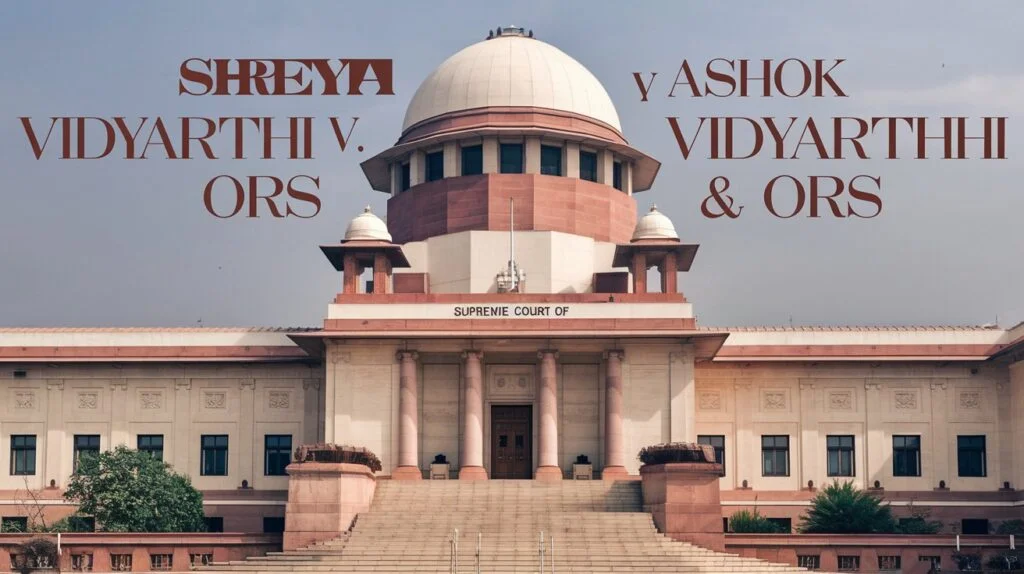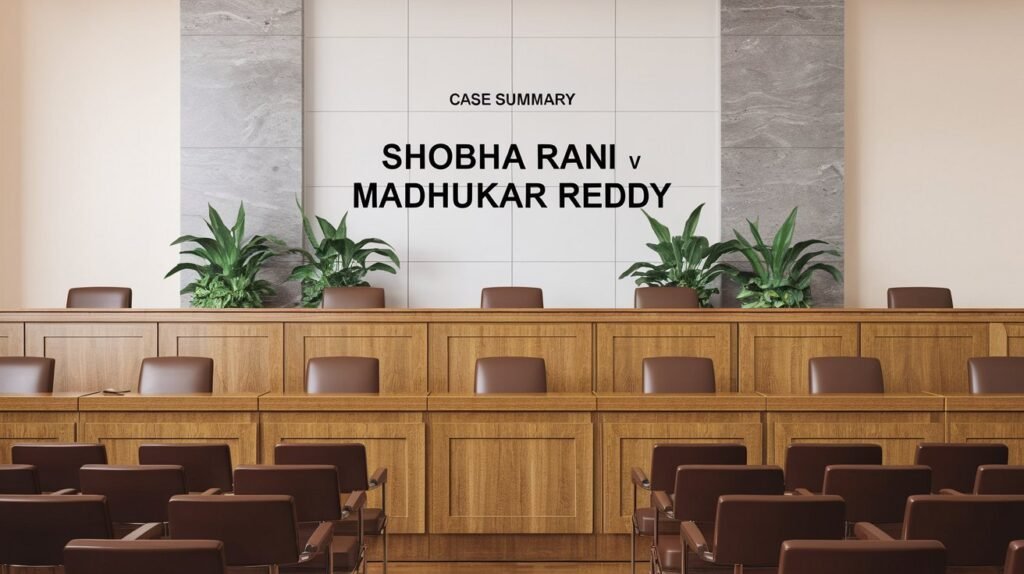Shobha Rani v Madhukar Reddy AIR 1988 SC 121 (Case Summary)

The Supreme Court of India addressed the issue of cruelty in matrimonial cases and clarified that demanding dowry constitutes cruelty, thereby entitling the wife to a decree of divorce under Section 13(1)(i-a) of the Hindu Marriage Act, 1955. The Court examined how cruelty should be interpreted in matrimonial disputes and its applicability in modern legal contexts.
Table of Contents
ToggleFacts of Shobha Rani v Madhukar Reddy
- Shobha Rani, the appellant, married Madhukar Reddy, a medical doctor.
- Soon after the marriage, Shobha Rani faced demands for dowry from her husband and his family, leading to a strained marital relationship.
- The appellant filed for divorce on the grounds of cruelty, primarily alleging harassment and dowry demands.
Issues framed
- Whether demanding dowry amounts to cruelty under Section 13(1)(ia) of the Hindu Marriage Act?
- Whether cruelty in matrimonial cases should be interpreted broadly, considering both physical and mental cruelty?
Subordinate Court Judgment
In the trial court, Shobha Rani filed for divorce on the grounds of cruelty under Section 13(1)(i-a) of the Hindu Marriage Act, citing persistent demands for dowry and harassment from her husband, Madhukar Reddy, and his family. The trial court dismissed her petition, stating that the evidence presented was insufficient to prove cruelty.
On appeal, the High Court upheld the trial court’s decision, reiterating that the allegations of cruelty and dowry harassment made by Shobha Rani were not adequately proven. The High Court ruled that the incidents described by the appellant did not rise to the level of legal cruelty as required under Section 13(1)(ia). The High Court focused on the lack of direct evidence and concluded that the claims were not substantial enough to grant a divorce.The High Court while dealing with this part of the case has observed that there is no evidence to show that the demands were such as to cause harassment to the wife.The case was then appealed to the Hon’ble Supreme court.
Judgment of Shobha Rani v Madhukar Reddy
The Supreme Court examined Section 13(1)(i-a) of the Hindu Marriage Act, 1955, which provides for divorce on the grounds of cruelty, and interpreted it in light of the Dowry Prohibition Act, 1961, and Section 498A of the Indian Penal Code, which criminalizes dowry-related cruelty.
The Supreme Court held that cruelty in matrimonial cases need not always involve physical violence and can include mental harassment, such as dowry demands. It emphasized that cruelty should be understood broadly, considering the impact of the conduct on the spouse. The Court further clarified that intent to harm or harass is not necessary to prove cruelty, and unintentional acts can also constitute cruelty if they cause mental or physical harm.
The Supreme Court reversed the lower courts’ rulings and granted Shobha Rani a decree for divorce, holding that the demand for dowry by the respondent and his family constituted cruelty. The Court concluded that persistent dowry demands, and harassment is cruelty and are sufficient grounds for dissolution of marriage under Section 13 of the Hindu Marriage Act,1955.





